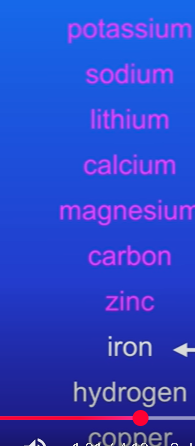Extraction of metals.
1/5
Earn XP
Description and Tags
https://www.youtube.com/watch?v=MXTSels6e2Y&list=PL9IouNCPbCxXDlRtCQEG0cGehBvJ7t9Pf&index=3
Name | Mastery | Learn | Test | Matching | Spaced | Call with Kai |
|---|
No analytics yet
Send a link to your students to track their progress
6 Terms
Where are unreactive metals found
In the earth as the metal itself, such as gold.
Where are iron oxide and copper oxide found.
In these minerals, the metals have reacted with oxygen to form compounds.
Whats a key fact about compounds.
A more reactive element will push out ( displace ) a less reactive element from its compound.
How can we determine what elements can displace iron in iron oxide.
Using reactivity series.
All of the elements above iron can displace it

What happens when magnesium reacts with iron oxide.
Magnesium is more reactive than iron, so when it does react, the magnesium can remove the oxygen atoms from iron atoms, producing magnesium oxide, and iron
The iron atoms have been reduced, as they have lost oxygen.
Magnesium atoms have been oxidised, as they gained oxygen.
